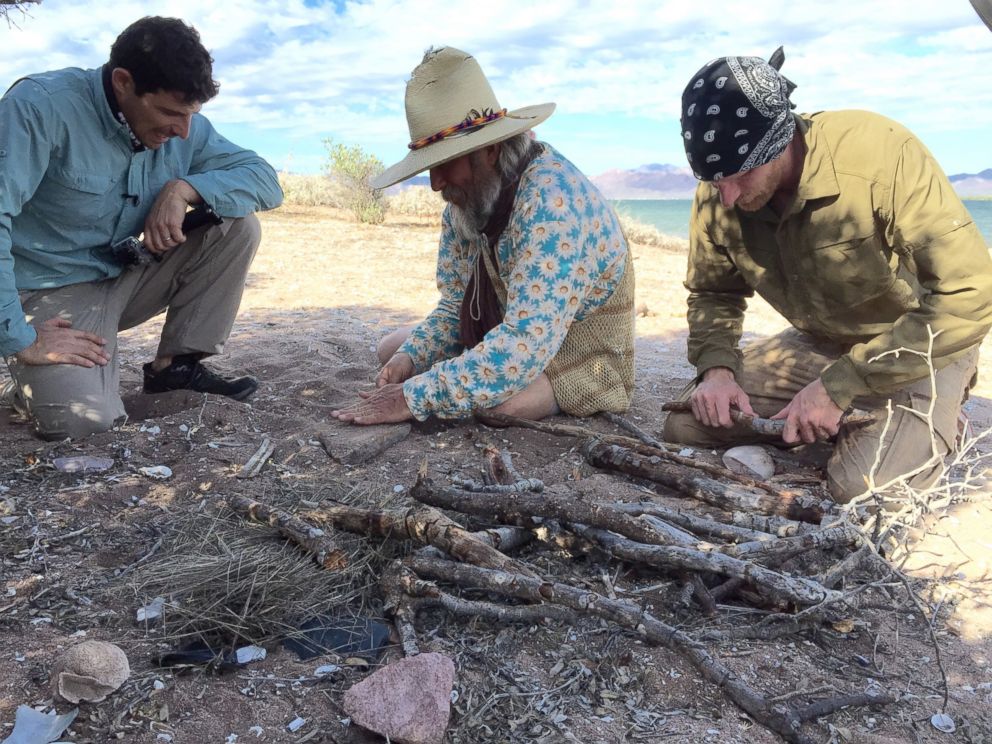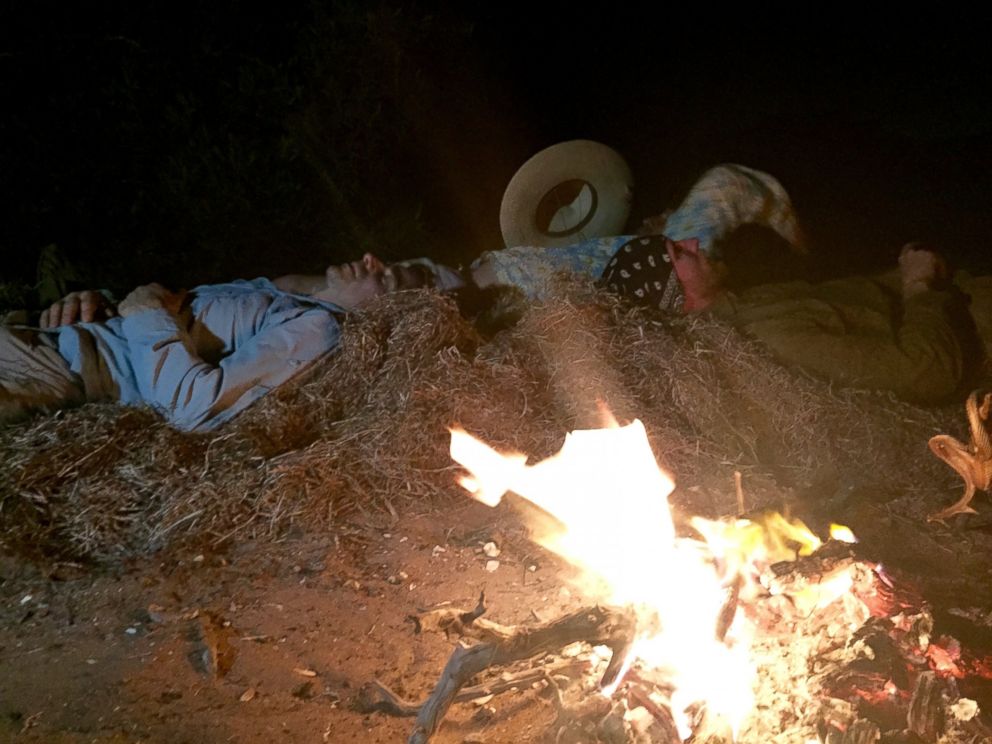How to Survive 24 Hours on a Deserted Island
ABC News' Matt Gutman was dropped onto an island for a test in survival.
— -- ABC News correspondent Matt Gutman has been sent out to learn how to survive in some of the worst-case disaster scenarios, including simulations of plane crash into open water, how to escape a submerged car, and more. For the next installment of "Good Morning America's" Survival Week series, Gutman took on the ultimate survival challenge: 24 hours on a deserted island. Gutman was dropped from a helicopter into open water off of Tiburon Island in Mexico, accompanied by two wilderness experts from California Survival School, and his survival skills were put to the test. Don’t try this at home.
I was afraid. Not because I was flying unbuckled on a helicopter with no doors, the Mexican desert and then shark infested waters a whir below. It also wasn't because I was about to step out of the chopper, backwards, my head way too close for comfort to the giant rotor blades. And it wasn’t because I was about to drop into the Sea of Cortez into a place called the Devil's Mouth.
I had practiced that. What I hadn’t practiced was being hungry and thirsty for 24 hours.
The plunk into the water was exhilarating. We swim to shore. The goal is to find water. But this is after all a desert island. My guides are 59-year-old Dave Holladay and 32-year-old Dan Baird, top survival experts from the California Survival School, which specializes in primitive survival training and runs outdoor adventure excursions. Dave has taught some of the most famous survivalists in the world including Bear Grylls and Les Stroud of “Survivorman.” We haul ourselves onto shore, encrusted with salt. For the next 24 hours all we have are the clothes on our backs. The goal is to get through it with nothing more.
Water of course is all around. But all of it salty.
We set about finding camp.
The great curse of the oceans is garbage. Pollution everywhere. But it is the castaway’s blessing. Dave told me that our first great hope would be to find a bottle of water or soda or something discarded. I combed the beach and it wasn’t too long before I found a bottle – the kind we so often dump – one quarter full. We’d have to split it three ways.
Dave said “you’re a lucky guy.” The harder way to find water is to track deer and animals to their drinking grounds. But that takes expertise. As I learned, so does making a fire.
First comes the hike into the brush to find fire starters: a spindle made from strong, but dry wood. Fully dry. You need a base too. Same kind of wood. It's not easy to find on a desert island. We hike inland and Dave - who wears a giant cracked straw hat, beads, a blousy floral Henley shirt, and worn sandals that seem made out of cardboard - scrambles goat-like up an Elephant tree, and finds a possibly suitable branch. We also gather an armful of dry grass for tinder and smaller branches.
Turns out fire, is a huge, massive pain.
We haul the wood back to camp, find a flat stone and for the next hour I scrape our L-shaped branch flat against a stone.

At this point, after spending about two hours in the water, hiking in the brush for another couple of hours and baking in the hot sun, I began to feel a saw-dusty thirst creep into my mouth.
Dave teaches me how to make the spindle and we rip the hem off his T-shirt to make a bow for the "bow drill." The idea is to use the bow to spin the spindle on the flat and notched piece of wood. Like playing a cello –- but super fast. Dan and I are the musicians -– flailing away at the spindle. It keeps popping off the branch we’re using as a flat board. Finally Dave gets another stick and uses a hand spindle –- we twist the stick in our hands, as if warming our hands over a fire.
Finally fire. We nurse our baby to life. ... But to nourish it, we need wood. Lots of it. Another hike into the brush. With sun setting we head back to camp.
Now the thirst is intense. And with the fire going we break out our water bottle. At this point you don't care about germs, or disease. Only to melt the sawdust in your throat back into the semblance of saliva.
We break it out like a fine bottle of scotch. Caressing it. Tipping our heads back –- careful not to miss. Lovingly swishing the water around in my mouth –- I realize this is the best thing I have ever tasted.
A few sips and it’s over. Dan abstains and encourages me to do the same. But I found the water – and challenge him in my thirsty panic: I am drinking god-knows-what water laced with god-knows-how many parasites.
(They then convinced me that the sun bleaches all and the UV rays essentially sanitize the water – phew.)
After a rattlesnake nearly bites us, I am taught how to skin it, clean it and cook it (on a stick, low flame, "Jerky-style" it's called.)

Dave gathers heaps of dry sea grass and we bed down. Dan and Dave back to back –- me just near them ... Hard to sleep. I have a cold and can't breathe through my nose. The temperature drops and I spend hours trying to get closer to the fire and cover up any patch of exposed skin.
We all wake up at 3 am-ish from the cold. And swap stories. We're all thirsty and cold, but there is comradery under the stars (and then the clouds, and then the drizzle – enough to make us cold but not enough to drink.
'GMA' Survival Week: Waking Up on a Deserted Island
Finally the sun cracks through. We search for mollusks and cook them, but the thirst only increases.
Hours later our time on the island is over.
We get on the boat, munch on the sweetest oranges on God's green Earth and motor back to land. But it's that first gulp of sweet, plastic water that I still taste, and almost miss ...




